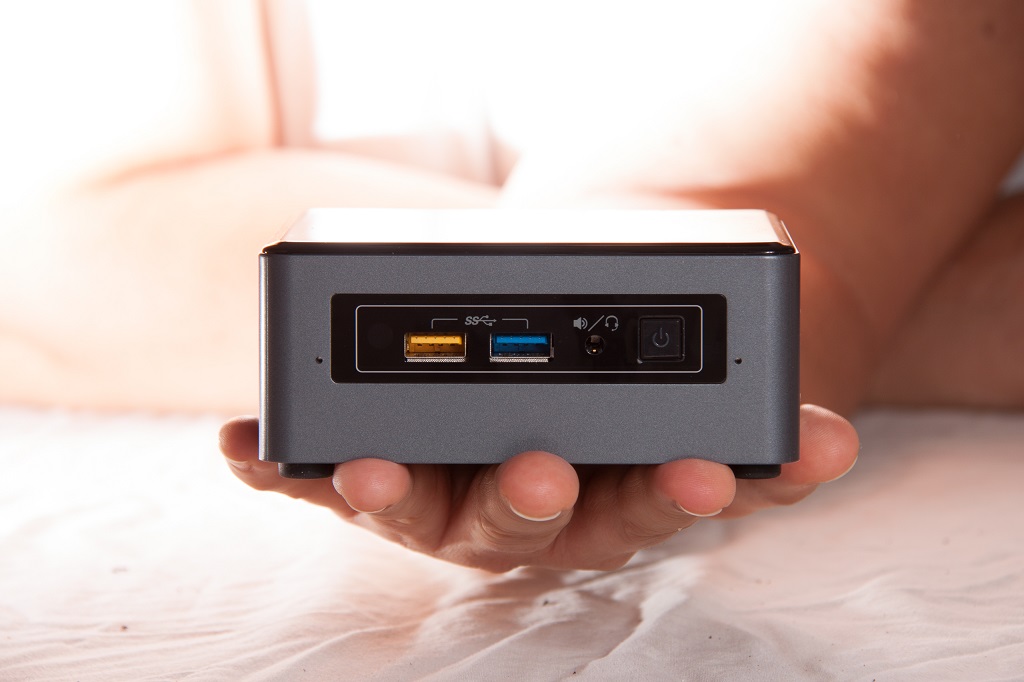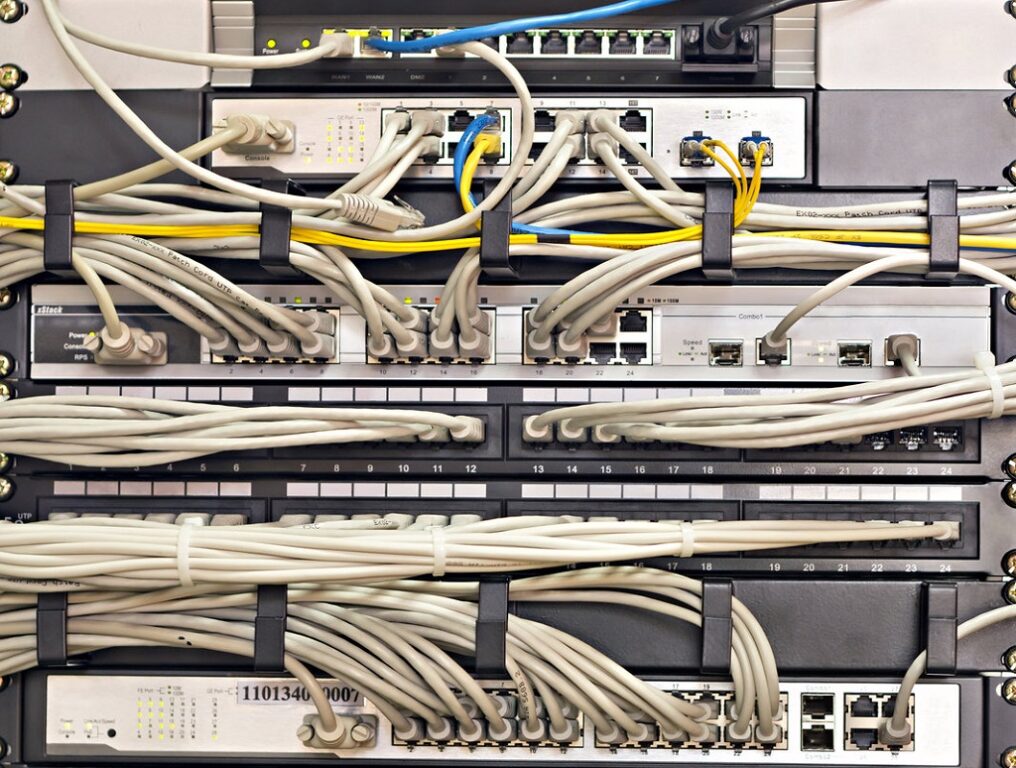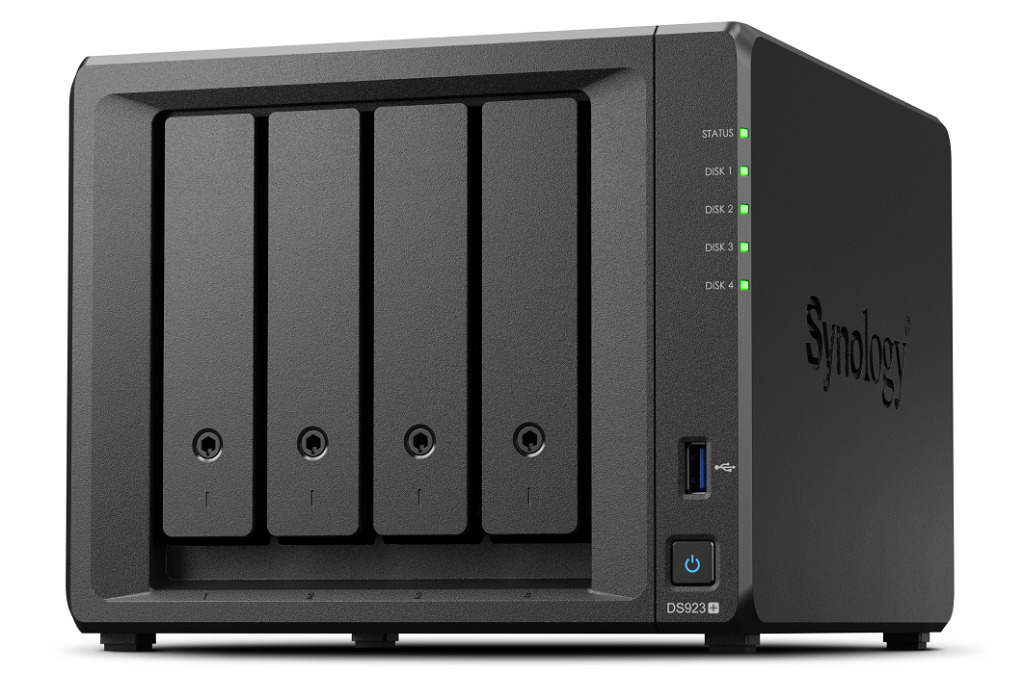Have you ever wondered about having a hub of digital convenience at home? Well, look no further than a home server! A home server is a powerful and versatile device that can revolutionize how you interact with your digital world from the comfort of your home.
Whether you're a digital enthusiast, a media lover, or someone who values privacy and control over their data, a home server can be an excellent addition to your household. It empowers you to take charge of your digital life and brings convenience, security, and flexibility to your fingertips.
What is a Home Server?

A home server is a dedicated computer or device set up in your home to store, manage, and share your digital files and data. It acts as a centralized hub where you can store important documents, photos, videos, and other files, making them easily accessible to all devices connected to your home network.
Think of it as your personal data vault that allows you to organize and access your files from anywhere within your home.
Why You Should Consider Having a Home Server
There are several key reasons to consider having a home server; Convenience, cost savings, and increased data security.
A home server can be a centralized hub for storing and accessing all your important files and media. You only need to store one copy of your files and access them from any device on your network. This single-storage method can bring simplicity to your daily routine.
It also increases the reliability, security, and privacy of your data. Storing one copy of data on your server makes it easier to keep private and secure. You decide who has access to it and what security measures are in place, ensuring your peace of mind. Backups are also more convenient.
Finally, a home server lets you save on costs for those with multiple devices at home. With the home server doing most storage and processing, you can opt for more lightweight, cheaper, and energy-efficient devices.
6 Ways to Use Your Home Server

A home server is not limited to storage alone. It can be a versatile tool that opens up a world of possibilities. For instance, you can run applications, host websites, and even create your own personalized cloud services.
Here are some exciting ways to use your home server;
Protect Your Data With Automated Backups
Set up regular backups on your home server to ensure your files are safe and secure. In case of accidental deletion, hardware failure, or other unforeseen events, you can quickly restore your files and maintain peace of mind knowing your data is protected.
Here are a few popular options to help streamline the backup process;
- Rsync – a command-line tool that enables efficient file synchronization and backup by copying only the differences between source and destination.
- Duplicati – a user-friendly, open-source backup software that offers automated backups with solid encryption.
- Bacula – Offers features like automated backups, data deduplication, and backup job scheduling.
Centralize Your Data Storage
Do you search for specific files through various devices, external hard drives, or cloud storage platforms? With a home server, you can bid farewell to the chaos of scattered files. It lets you consolidate all your data in one central location. No more digging through multiple platforms or devices—your files are organized and readily available.
Turn it Into an Entertainment Hub for Media Streaming
Are you tired of limited streaming options or paying for multiple subscriptions? A home server can transform your entertainment experience. Connecting your server to your TV or media devices lets you stream movies, TV shows, and music directly from your library. It's like having your own personal Netflix, curated with your favorite content.
Some great apps for this include;
- Plex – a versatile media server application that organizes your media collection and streams it to various devices.
- Kodi – a free and open-source media center software that transforms your home server into a comprehensive entertainment hub.
- Jellyfin – a free and open-source media server software that focuses on privacy and customization.
Host Your Websites or Blogs
Your home server can be a hosting platform. Install web server software on your server and set up your websites or blogs. This gives you complete control over your online presence's content, design, and functionality. Share your ideas, hobbies, or business with the world without relying on external hosting services.
Run Custom Applications and Services
Unleash the full potential of your home server by running custom applications and services. Explore various possibilities, such as running a personal cloud storage service, managing your email server, or hosting multiplayer game servers.
Examples of suitable custom service apps for home servers include;
- Mail-in-a-Box – An open-source, easy-to-use email server software designed for individuals and small businesses.
- SteamCMD – A command-line tool provided by Valve Corporation specifically for hosting game servers on the Steam platform.
- Nextcloud – A self-hosted, open-source cloud storage platform that allows you to create your cloud server.
Build and Run Virtual Machines
One of the significant advantages of having a home server is the ability to run virtual machines (VMs) on it. Virtual machines allow you to create multiple isolated operating system environments within a single physical server.
Using this method, your home server can become multiple other devices. For example, I run 2 variants of Linux on my home server and macOS. It's incredibly convenient for those who need simple environments for testing apps or programming scripts.
To run a VM you can consider using;
- Microsoft Hyper-V – Provided by Microsoft, Hyper-V allows you to create and manage virtual machines.
- Oracle VM VirtualBox – A free, open-source virtualization software that allows you to create and run virtual machines on various host operating systems.
How Much Will a Home Server Cost?

Expect to spend at least $1,000 for a decent home server. Remember that while home servers can help save money, that's mainly true for those who run multiple devices at home in the first place.
Here are some of the costs you must consider;
Home Server Hardware
The initial hardware cost is a crucial aspect. Of course, the price will vary depending on your required specifications, such as processor, RAM, storage capacity, and networking capabilities.
Additionally, you should invest in peripherals like hard drives, SSDs, and cables. The overall cost can vary greatly, but choosing quality components that suit your needs and budget is essential.
Operating System
Depending on the home server software you choose, there may be costs associated with the operating system (OS). While some server OS options are open-source and free, others may require purchasing licenses.
Linux distributions like Ubuntu Server are typically free, while specialized server OS distributions may have associated costs. Consider your requirements and research the licensing options accordingly.
Energy Consumption
Running a home server will contribute to your electricity bills. The energy consumption of a server varies based on factors such as hardware specifications and usage patterns. While home servers have become more power-efficient over time, it's essential to consider the potential increase in energy costs and factor it into your budget.
You can save on energy consumption costs is using a small form factor device as a home server. I've tried this with an Intel NUC, which works well for most basic use. After all, it needs to act as a hub more than do heavy processing.
Software and Applications
While open-source and free software options are available for home servers, you might need to budget for specific paid applications or services depending on your requirements.
For example, there may be associated costs if you need specific backup software, media server software, or security applications. Research the software landscape and determine which options align with your needs and budget.
Security Services
Stay Safe With NordVPN
NordVPN offers 256-bit encryption, RAM-only servers, and a no-logs experience guaranteeing best-in-class privacy and security.
Keeping your home server secure is essential for anyone considering running one. You'll need most of the same security apps as your other devices, like antivirus apps, ad blockers, a virtual private network (VPN), and a password manager.
The VPN can help enhance your privacy and anonymity online. When connected to a VPN, your internet traffic is routed through a VPN server, masking your IP address and making it difficult for others to track your online activities.
Maintenance and Upgrades
Over time, you might need to invest in maintenance or upgrades for your home server. This can include replacing hardware components, expanding storage capacity, or updating software and security features. It's important to anticipate these costs as your needs evolve and technology advances.
How to Set Up a Home Server
You might be concerned that setting up and managing a home server is too complex. Fear not! While advanced configurations exist, there are user-friendly options available. Many solutions provide intuitive interfaces and step-by-step guides, ensuring that even non-technical individuals can enjoy the benefits of a home server without hassle.
Alternatives to Setting Up a Home Server

While home servers can be handy, better solutions are sometimes available. Take, for example, those who only need a way to centralize and back up their data for the whole network. Depending on your needs, a more cost-effective solution may be possible.
Here are some alternatives to consider instead of a home server;
Network-Attached Storage
A Network-Attached Storage (NAS) device is a dedicated storage solution that connects to your home network. It offers centralized storage and file-sharing capabilities without setting up a full-fledged server.
NAS devices come in various sizes and configurations, allowing you to choose one that fits your storage requirements and budget. They often have user-friendly interfaces and offer additional features like media streaming and automated backups.
External Hard Drives
External hard drives can be cost-effective if you have relatively modest storage needs. They offer portable storage that is easily connected to your computer or other devices. You can manually manage and organize your files across multiple drives or use software for automated backups.
While this option lacks the centralized accessibility of a home server, it can be a viable choice for occasional backups and portable storage.
Virtual Private Servers
If you require more advanced capabilities than a simple home server, you can explore virtual private servers (VPS). This form of web hosting allows you to rent a virtual server from a hosting provider.
It gives you greater flexibility, scalability, and the ability to run custom applications and services. However, VPS hosting typically involves additional costs and requires some technical knowledge to set up and manage.
Final Thoughts on Home Servers
Investing in a home server gives you control over your data and reduces dependence on third-party services. You can customize and tailor your server to meet your needs, whether for personal or professional use.
Setting up and managing one requires technical expertise and initial investment. However, the benefits and potential it offers far outweigh the challenges. With online resources, communities, and guides available, you can find the support and guidance needed to embark on this exciting journey.
Also Read